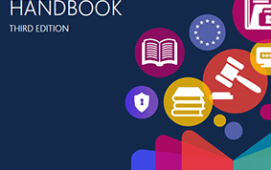In a move that may allow the practices of the world of pricing and valuations to become more harmonised globally, the Securities and Exchange Commission (SEC) has indicated it is keen for a single set of high quality globally accepted accounting standards to be implemented. To achieve this goal, the regulator has finally begun to put words into action and has kicked off an evaluation process about what needs to happen to narrow the gap between US Generally Accepted Accounting Principles (US GAAP) and International Financial Reporting Standards (IFRS).
SEC chairman Mary Schapiro admits that it has been a long road but feels progress will be made now: “For nearly 30 years, the Commission has promoted a single set of high quality globally accepted accounting standards, which would advance the dual goals of improving financial reporting within the US and reducing country by country disparities in financial reporting. But supporting this goal is only the beginning of the discussion, not the end.”
SEC staff have now been charged with executing a work plan, the results of which it hopes will aid the regulator in its evaluation of the impact that the use of IFRS by US companies would have on the US securities market. Included in this work will be consideration of IFRS, as it exists today and after the completion of various “convergence projects” currently underway between US and international accounting standards setters. By 2011, assuming completion of these convergence projects and the staff’s work plan, the SEC has pledged to decide whether to incorporate IFRS into the US financial reporting system, and if so, when and how.
However, this is not the first time the SEC has promised progress, back in November 2008, it proposed a series of milestones, known as the proposed roadmap, that would guide the SEC in determining whether to transition US capital markets to IFRS. The feedback to these proposals was a rather mixed bag and the regulator has since been cautious to force through change. “It is important to carefully consider and deliberate whether such a change is in the best interest of US investors and markets,” notes the regulator in its statement.
The work plan will therefore consider a range of issues related to moving to IFRS including whether the international standards are “sufficiently developed and consistent in application for use as the single set of accounting standards in the US reporting system”. Given that they are implemented elsewhere, this should be evident but the SEC doesn’t want to appear callous.
It will also be charged with ensuring: that accounting standards are set by an independent standard setter and for the benefit of investors; investor understanding and education regarding IFRS, and how it differs from US GAAP; evaluation of the legal implications of such a change; consideration of the impact on US companies; and determining whether the people who prepare and audit financial statements are sufficiently prepared, through education and experience, to make the conversion to IFRS.
The SEC staff has stated that it will provide public progress reports on the work plan, as well as the status of the Financial Accounting Standards Board (FASB) and International Accounting Standards Board (IASB) convergence projects, beginning no later than October 2010 and frequently thereafter until the work is complete. As noted by Reference Data Review last month, this work has recently focused on fair value accounting standards.
The US regulator has said that it expects US companies would need approximately a four to five year timeframe to successfully implement a change in their financial reporting systems to incorporate IFRS. Therefore, if the regulator determines in 2011 to incorporate IFRS into the US financial reporting system, the first time that US companies would report under such a system would be no earlier than 2015 (who said progress wasn’t speedy).
Subscribe to our newsletter





